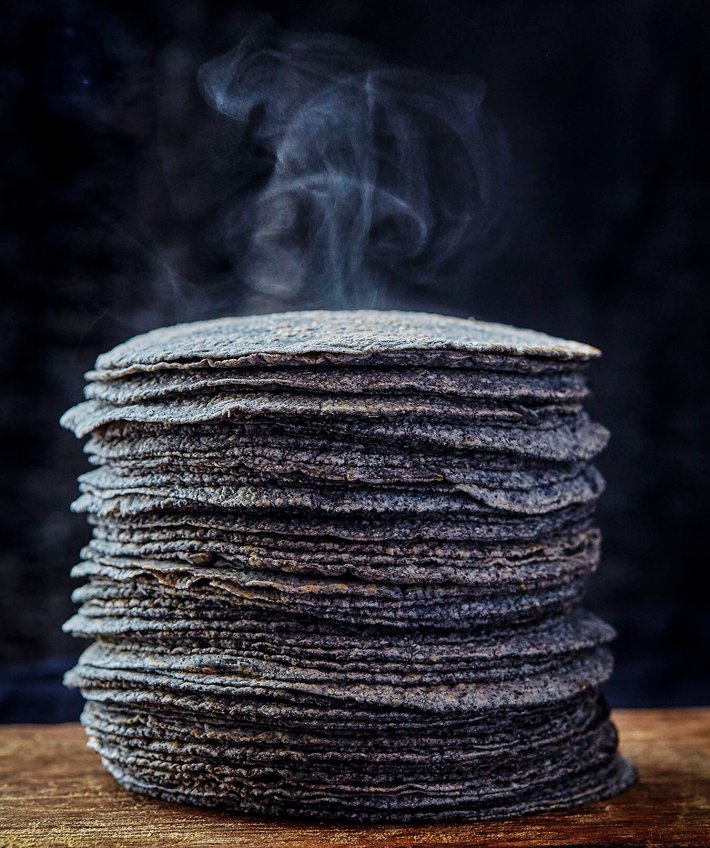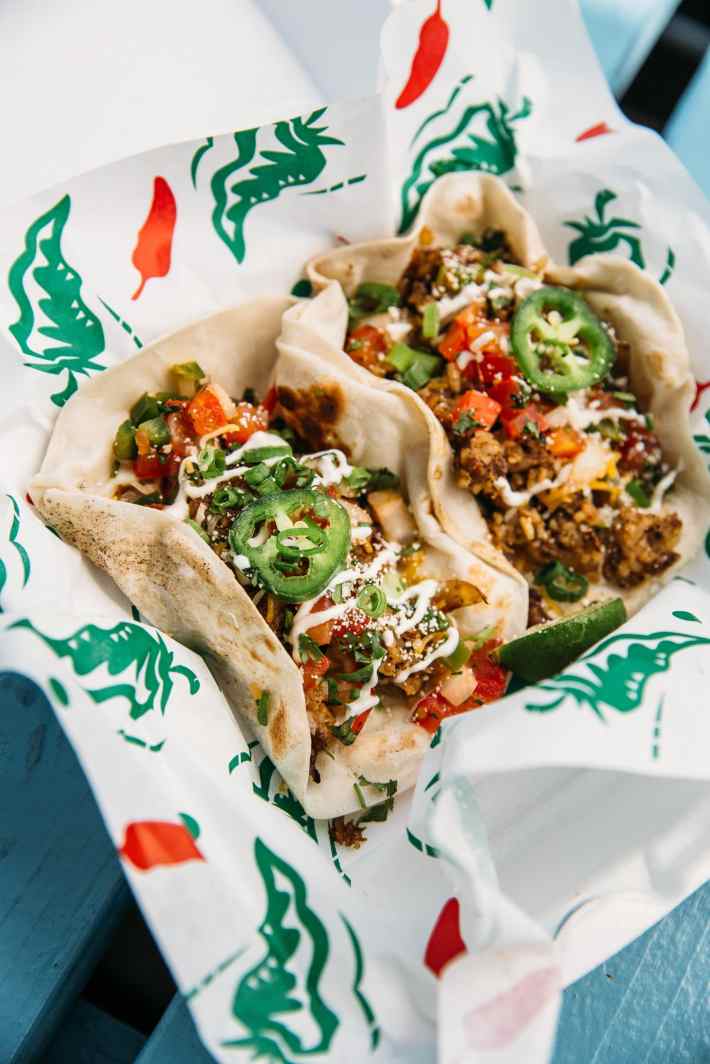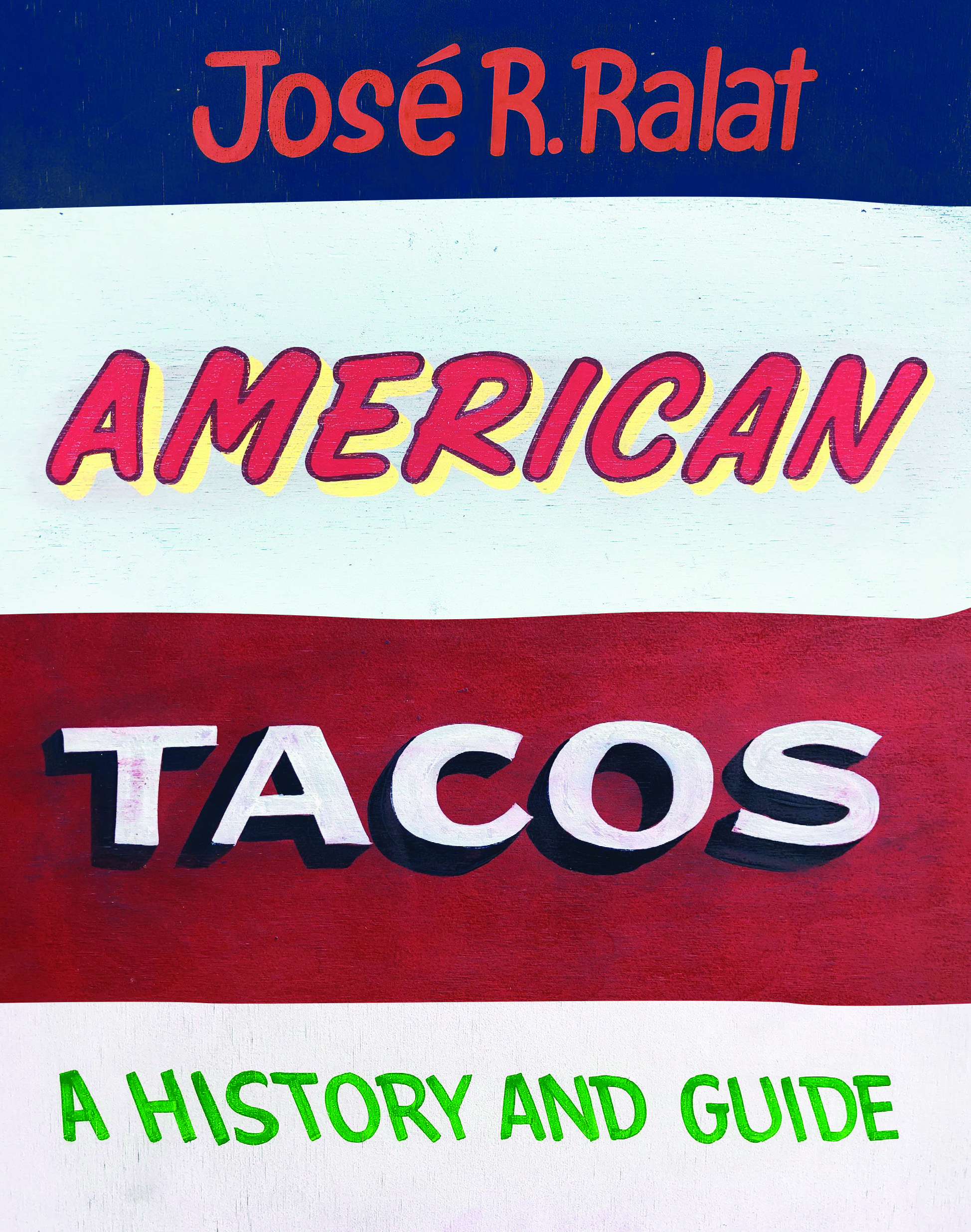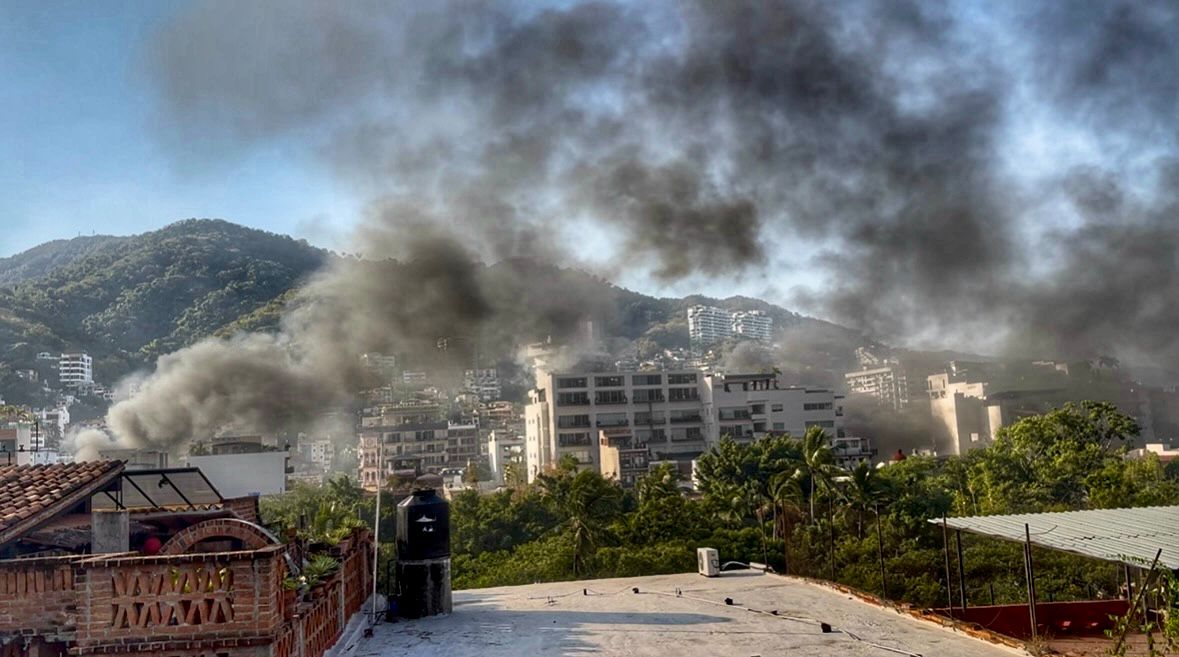[dropcap size=big]T[/dropcap]here is no greater time to be a taco nerd than right now—specifically, today.
Introducing American Tacos: A History and Guide, the latest and greatest compendium to the proud, the few, the tortilla-obsessed of the United States. Written by none other than the taco scholar, author, historian, and Taco Editor for Texas Monthly, José R. Ralat, it is a 280-page deep dive into the past, present, and future of tacos found around the United States.
If it is wrapped with a corn or flour tortilla and considered an institution in the lower 48 states, chances are that it is featured or referenced in this red, white, and blue-striped hardcover published by the University of Texas Press.
The lore around Korean tacos, breakfast tacos, parmesan-dusted tacos, Jewish tacos, Chicano locavore tacos, crunchy tacos, and a particularly enticing chapter on the newish brave new world of “Sur Mex” taco culture of the American south along the Gulf Coast are all brilliantly presented by Ralat. The book includes just enough taco porn to keep you flipping the pages and a shortlist of each region’s most iconic tacos that may or may not have you bookmarking them online “just in case” you’re ever nearby.

L.A. Taco caught up with the freshly minted author on the big day before his first book dropped and put him on the hot seat. We discussed the differences between American tacos vs. Mexican tacos, why sometimes it is OK to eat tacos on crappy tortillas, and answered the age-old question once and for all: Can white people make great tacos?
L.A. Taco: What do you want your readers to know before they crack open your first book?
José R. Ralat: A taco can taste great, but so what? The story of the food is really the story of the people. I review Mexican food but I try to put into stories the people behind it and their background. Context is everything. You have to understand where people come from and why they do the things they do. Maybe that will help you think about what you do and help you relate to them.
So what is an American taco to you?
An American taco is like any other taco. It's reflective of its time and place and the people who have done it over time, just like Mexico, but it's different geography. It's a different political boundary with its own population shifts and microregions. How I describe is: Tacos were available on both sides of the border before there was a border. When this imaginary line was demarcated, it forced tacos north of the border to develop distinctly because of demographics and supply and demand. That’s really it. Each country has its own tacos dorados and we can discuss what the merits are of a midwestern crunchy taco, but to me, it's all the same. It's all valid. It's all worth thinking about. Tacos tell a story of the places and the people.
Conversely, what is a Mexican taco then?
It's the same thing except from the motherland! It’s the foundation of it all! Sin maiz, no hay pais. It is everything. It’s the foundation. It’s Mexico’s gift to the world and we can't forget that, man. We can't forget where it comes from. Forgetting that is just insulting.

What would you say is the quintessential L.A. taco and why?
Oh, that's a really good question because tacos you wouldn’t think have trends, but they do! Right now, what's so popular is that birria de res and it’s fascinating to me that you guys call it “Tijuana-style” when the same [beef] preparation is made in places like Morelia and Sahuayo. But the L.A. taco is the taco truck taco. It’s the street vendor taco. It’s the more popular taco from chefs like Wes Avila Guerrilla Tacos to shrimp taco from Mariscos Jalisco. I understand the term “OaxaCalifornia” as a way to frame one of the main Mexican demographics of Los Angeles. Even then, that’s not it. It’s where K-Mex comes from. It’s a dynamic and ever-evolving place that everyone looks to see what is new and exciting.
As far as north of the border goes, it’s the capital where everyone looks to. I don’t see it as ground zero but I do see it as one of the many places where I can say that tacos are firmly rooted in and part of the identity, like San Antonio or other cities like that.
I see you included Cacao in Eagle Rock in your shortlist of L.A. taquerias approved by you, why?
So, Cacao is one of the places that I wanted to highlight because it is part of Alta California movement. Right now that's one of the major movements that define Los Angeles. It’s one of the earlier places that was doing it too. I always want to look back at some of the first places where you can trace and taste history.
You’ve been quoted in saying, ‘When it’s delicious, nothing else matters.” As a taco nerd, how do you maneuver between the fallacy of being obsessed with authenticity and just enjoying something and not overthinking it?
Being obsessed with authenticity is a very interesting way of pointing out that I'm constantly telling people to ‘shut up about it!’ I'm getting tired of it. That's one of the points of the book. To say: Get over this idea that there is this singular taco-style that defines everything else. Sometimes it is OK to eat tacos that are just good enough. The ones I make at home with whatever they’re filled with will never compare with professional taqueros, but I fucking love them. What you make at home or your local spot doesn’t have to be great, sometimes you just want to go there and hangout and eat. Think about all those backyard spots that you never told anyone about. [Taquerias] are our happy places and tacos are supposed to be first and foremost, sustenance. I hope they’re tasty too. If I need something to fill myself. I want them to taste good. Not every taco will be Carlos Salgado or Gino Rojas level or that old man in Michoacán you once had. That’s OK. It doesn’t have to be.
Can white people—or anglos as you call them in the book—make great tacos?
Yes! They can because I think if we approach something with respect and humility, they can do it justice and maybe create something great. It will be representative of something not from Mexico—because it can’t be—but of a time and place. In the book, I reference Minero in Charleston and Atlanta because they’re trying to do what is considered a traditional Mexican preparation. But to chef it up and call your restaurant fucking Minero? That takes balls, man. But what the chef at the time said was, “I know that this is a learning process.” I encourage people to really get into what makes their part of the world special and I think that can be reflected on a taco, especially because the American South and Mexico are the world's greatest corn cultures. It's a natural pairing.

Many ‘American tacos’ in my experience have the tendency to rely on mediocre, commodity, packaged tortillas. Is this something that has become so mainstream that you just accept it as part of the American taco-style or do you still discount points for that?
I'm gonna give you an answer that might be difficult for a lot of people to stomach. There is no denying the supremacy of a freshly made tortilla from nixtamalized corn or heirloom ingredients. It’s almost like you’re in the milpa. Afterward, a good tortilla’s aroma lingers on your fingers—hopefully for hours—and you never want to let it go. There's nothing like it, but you're probably gonna pay a lot of money for that and I think we need we need to be reminded that not only are there popular prohibitive price expectations around the price of tacos but that some taquerias aren't equipped financially to make their own tortillas.
To succeed, they need to value consistency over artisan craftsmanship. There's there's nothing wrong with that. We can prefer one tortilla over another, but it is entitling of us and very snobbish of us to completely discount the good taquerias run by hardworking people for using a certain tortilla for whatever reason. A lot of the time, it’s all they can afford.
It doesn't have to be your favorite taco or the one that you love, but don't discount them. It's not always necessarily their fault. Some technique do go the cheap route and cut corners, but most don't. Most work really hard to make great guisos and they can only afford a certain type of tortilla. A lot of times its just finances. Right now during COVID-19, more than ever, but tacos will prevail. I know it’s not a popular take but the commodity yellow corn tortilla is used for very specific reasons. We should never look down on people who work their asses off.
What it would take for those kinds of mediocre corn tortillas to be replaced is more affordable heirloom corn, but there is only so much of that to go around. When a large percentage of the corn that's used in Mexico comes from the US. That opens up a whole other world of problems that we have to address. In the meanwhile, I’m not going to begrudge commodity tortillas.
When it comes to flour tortillas, it’s fascinating to me that so many Americans think flour tortillas are not legitimately ‘Mexican’ when that’s what many use for their tacos at home. And most likely, they will use a shit flour tortilla from a bag. It doesn’t take much to make a flour tortilla at home and what you get from most packaged flour tortillas is dry, cracker-like flour tortillas.

What do you say to Mexicans-Mexicans, not Mexican-Americans who pride themselves in the purity of their classic tacos and scoff at some American interpretations of tacos?
That’s a tough one. A lot of the times, that’s followed by ‘my abuela made x!’ But maybe your abuelita was a bad cook! Maybe the carne asada you get on the corner isn’t that great but it is what you know. What I would say to anyone is that we need to understand and agree that if something exists outside of our realm of experience, it can still be legitimate. Who the fuck made you the arbiter? Who am I to say that’s not a taco? Who are you? I don’t think that all tacos are Mexican and when I want a “Mexican taco,” I’ll go to Mexico to eat one. After all, it’s not that far!
Do you think we will one day see where “American tacos” is a subcategory of tacos? Hear me out: “Honey, can we do American tacos tonight?”
No. I think we’re going to get even more specific. Do you want “K-Mex” tacos? Do you want “Alta California” tacos? But only if you’re in Southern California. That’s the one category that is so tied to place that once you remove it from its geography, it ceases to exist. The good thing is that American tacos are such a large category on its own, it is bigger than a subcategory.
Do you have any words of advice for any budding taco nerds out there who want to follow in your footsteps and also become a Taco Editor and Taco Author?
The short answer is experience. By that I mean, experience not just in eating—anyone can eat a lot of tacos—but also in reading everything you can about the subject, traveling, and listening. I think listening is the most important aspect. The story of the food is in the people. We can't tell the story without listening to the people.
Thanks for speaking with us.






